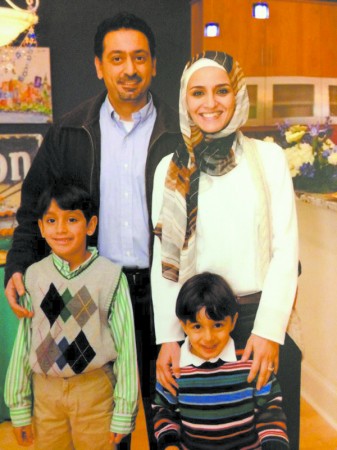
By Jenna Goff
Starting June 29, Ashraf Awad and his family will wake up before dawn every morning for a month.
The day marks the ninth month of the Islamic calendar, which will be the beginning of Ramadan for the Brookhaven family and Muslims around the world.
In the Islamic faith, Ramadan is the holiest period of the year. It is a holiday that focuses largely on fasting, with the goal of building a stronger relationship with God, Awad said.
The Awads wake up every morning during Ramadan for a pre-dawn meal. “Prayer follows the meal, and we continue the fast until sunset,” Awad said. “We break the fast with dates and water, followed by evening prayer and a meal.”
Fasting is an essential component of the Awads’ faith. “Fasting during Ramadan is one of the Five Pillars of Islam,” said Awad. “We abstain from food and drink during sunlight hours to focus on our devotion to God.”
The Five Pillars of Islam are requirements that every Muslim must fulfill to live a good life. The fact that one of them focuses solely on Ramadan speaks to the holiday’s importance.
The Quran, according to Islamic tradition, first was revealed to the Prophet Muhammad during the month of Ramadan. Because of this occurrence, Muslims spend additional time in prayer. “It is a time of heightened focus,” said Awad. “There are extra prayers and extra time spent reciting the Quran.”
While in this sense, Ramadan is a largely personal holiday, fasting also encourages Muslims to think about others. “While we are fasting, we feel compassion and sympathy for the less fortunate,” Awad said. “It makes us grateful for what we have.”
To observe this aspect of Ramadan, many local mosques host iftars, or fast-breaking dinners, where all are welcome, Muslim or not. “It is a month of charity when the Muslim community comes together to give to the needy,” said Awad.
The Awads attend Masjid Abu Bakr in Brookhaven, but they often go to other mosques around the Atlanta area to break the fast. Awad’s children, Omar, 8, and Ahmed, 4, especially enjoy this aspect of Ramadan.
“For the children, Ramadan is a fun time,” said Awad. “They like to spend time at the mosque at night; they enjoy the community coming together.”
Children may refrain from fasting. There also are exceptions for those who are pregnant, traveling, suffering from chronic diseases, and the elderly. But to make up for not fasting, these Muslims often buy meals for the less fortunate in the spirit of Ramadan.
“One of the common ways to give back is to sponsor a dinner,” said Awad. “The meals are always sponsored out of charity.”
Awad said that it hasn’t been hard to find a large Muslim population around Atlanta with whom to share these meals. He’s also found a very supportive community of people in Brookhaven.
“My wife and I love Brookhaven,” he said. “It’s a very accommodating, open-minded community. We’ve been able to open up to share our traditions and food.”
But the Awads sometimes face challenges from those curious about their faith. “It often takes a little longer to build bridges of community,” Awad said.
This doesn’t stop him from reaching out to others. He and his wife, Noor, are part of the Islamic Speakers Bureau of Atlanta, an organization devoted to developing understanding and awareness about Islam and Muslims.
“The ISB offers tours of mosques, so that people can see how it is from the inside,” Awad said. He also stressed that mosques’ Ramadan dinners are open to members of any faith.
“Ramadan is a time of community,” he said. “While you build on strengthening your personal relationship with God, it’s also about time together.”
